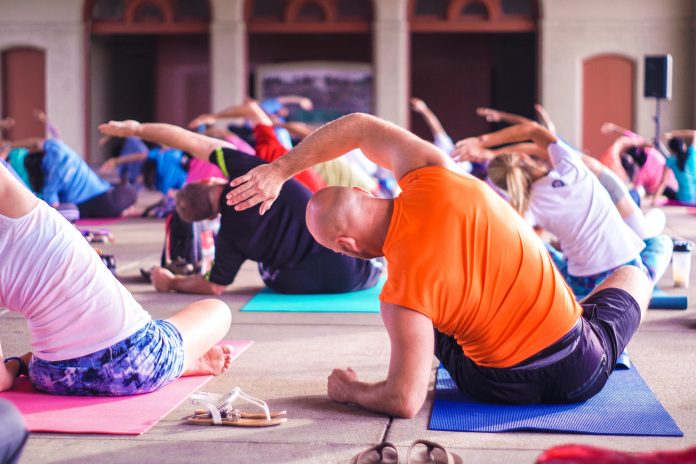Substance abuse is an ever-present reality; therefore it is imperative to address and bring awareness of addiction as an often neglected problem. With attitudes and legislation surrounding cannabis shifting rapidly over time, understanding and meeting rehabilitation challenges related to dependence become key components of rehabilitation efforts for those dealing with this form of dependency. We delve deeply into rehabilitation for individuals struggling with such addiction by exploring its impact, treatment options available, and pathways towards leading a happier, addiction-free lifestyle.
In this article we take an in-depth look into rehabilitation for addiction by looking into rehab facilities around the country as we explore its challenges as attitudes change accordingly.
Since legalization efforts gained momentum across various regions, perceptions about cannabis have drastically altered; many tout its medical and recreational applications; yet one alarming consequence of these changing landscapes has been an alarming spike in rehab weed addiction rates despite popular beliefs that this drug is harmless; these addictions take their toll on health, relationships and overall well-being.
Understanding Addiction
Addiction works along a similar neural pathway regardless of its substance of choice: hijacked reward pathways lead to cravings and consumption cycles, often repeated. With marijuana use specifically, THC interacts with receptors within the brain that release dopamine — commonly referred to as the “feel good” neurotransmitter — thus initiating this cycle of craving and consumption.
Why Addiction Occurs
Different factors contribute to addiction, including genetics, environment and personal circumstances. People who come from families that are predisposed may be particularly at risk while environmental influences like peer pressure can play an influential role.
Marijuana addiction can have detrimental impacts on both physical and psychological health. Long-term usage may result in respiratory conditions, memory issues and decreased cognitive performance as well as anxiety, depression and overall reduced emotional well-being for users.
Relational Disturbances and Social Isolation
Addiction often puts strain on relationships, leading to communication breakdown, mistrust and emotional distancing that makes recovery more challenging than expected. Social isolation becomes common as addiction takes root – making the road even longer to walk in recovery.
Recognizing Signs of Addiction Behavioral Indicators to Look Out For
Acknowledging marijuana dependence can be challenging. Individuals may display different signs that indicate addiction such as increased tolerance, unsuccessful attempts at quitting and neglect of responsibilities; and preoccupation with procuring and using cannabis.
Seeking Help: When and How
Recognizing your need for help is the cornerstone of recovery. Reaching out for support may take many forms: healthcare professional, counselor or support group membership are all invaluable sources. Stepping up is courageous act that sets in motion positive change and must not be avoided at any cost.
Road to Recovery: Treatment Approaches by Professional Counseling and Therapy.
Therapeutic interventions such as cognitive-behavioral therapy (CBT) can assist individuals to identify triggers and create effective coping mechanisms; counseling sessions provide safe spaces to further explore individual emotions and foster personal development.
Group Support and Peer Recovery are Two Key Components to Achieve Wellness
Group therapy harnesses the strength of shared experiences. Communicating with individuals who understand your struggles may foster an overwhelming feeling of support while decreasing any feelings of alienation and exclusion.
Holistic Approaches to Healing
Holistic practices such as mindfulness, meditation and yoga offer complementary therapy by supporting overall well-being. By increasing self-awareness and relieving stress from our lives, holistic practices assist with recovery journey.
Overcoming Challenges of Addiction Rehabilitation Addressing Relapses as Part of Recovery
Relapses are part of addiction recovery and should not be seen as failures but as opportunities to learn more and refine one’s approach towards lasting sobriety.
Family and Community Involvement
Loved ones’ support can be invaluable during a time of recovery, strengthening both family relationships and providing an efficient support network that fosters accountability and progress.
Reducing Reliance on Substances for Happier Living Learn About Adopting a Drug-Free Future And Rediscover Joy in Daily Living.
Recovery opens a path toward freedom from addiction. It’s an adventure of self-discovery and rediscovery where individuals can discover new passions, strengthen existing relationships, and find lasting fulfillment in life.
Goal Setting and Achievement in Recovery
Setting achievable goals is central to making progress towards healthier lifestyle. From short-term milestones to longer term aspirations goals, every achievement reinforces one’s dedication.
Recovering from cannabis addiction requires courage, commitment and self-compassion. With attitudes surrounding marijuana ever changing and rehabilitation options becoming ever more accessible and effective – professional treatments such as psychoanalysis combined with peer support groups or holistic practices being key components – individuals can break free of addiction to begin the journey towards a brighter and healthier future.

